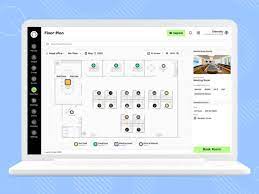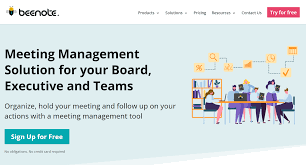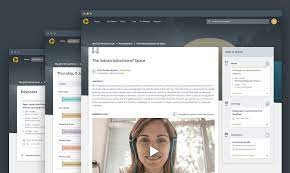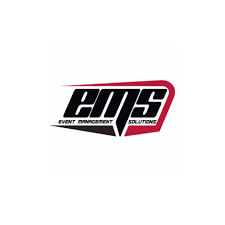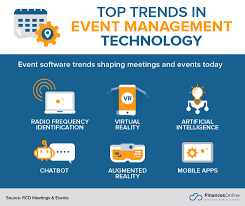Event Management Solutions: Streamlining Your Event Planning Process
Planning and organizing events can be a daunting task, requiring meticulous attention to detail, effective coordination, and seamless execution. Whether it’s a corporate conference, a trade show, a wedding, or any other type of event, the key to success lies in efficient event management solutions.
Event management solutions encompass a range of tools and technologies designed to simplify the entire event planning process. These solutions aim to streamline tasks such as registration and ticketing, venue selection, attendee management, scheduling, marketing, and more. By leveraging these innovative solutions, event planners can save time and effort while ensuring a memorable experience for attendees.
One of the primary benefits of utilizing event management solutions is the ability to automate repetitive tasks. With online registration platforms and ticketing systems, organizers can easily collect attendee information and process payments in a secure manner. This eliminates the need for manual data entry and reduces the chances of errors or delays.
Moreover, event management solutions provide real-time analytics and reporting capabilities. Organizers can gain valuable insights into attendee preferences, registration trends, ticket sales performance, and more. This data enables them to make data-driven decisions that enhance future events’ success rates by tailoring their strategies to meet attendees’ needs.
Efficient communication is another crucial aspect of successful event planning. Event management solutions often include features like email marketing tools or mobile apps that allow organizers to send updates and notifications directly to attendees’ devices. This ensures smooth communication before, during, and after the event while keeping everyone informed about changes or important announcements.
Collaboration among team members is also simplified with event management software. Multiple stakeholders involved in the planning process can access shared calendars, task lists, and documents from any location or device. This facilitates seamless coordination between different departments or external contractors involved in executing various aspects of the event.
Furthermore, some advanced event management solutions offer features like virtual or hybrid event capabilities. In the era of remote work and social distancing, these solutions allow organizers to host engaging online events or combine in-person and virtual components. This flexibility ensures that events can adapt to changing circumstances while reaching a wider audience.
In conclusion, event management solutions provide a comprehensive suite of tools and technologies that empower organizers to plan and execute successful events with ease. By automating tasks, providing valuable insights, facilitating communication, enabling collaboration, and adapting to evolving trends, these solutions revolutionize the event planning industry. Whether you’re a professional event planner or organizing an event for the first time, embracing these solutions will undoubtedly enhance your ability to create unforgettable experiences for attendees.
6 Tips for Effective Event Management Solutions
- Research and evaluate different event management solutions to find the one that best fits your needs.
- Plan ahead and set a timeline for each stage of the event planning process.
- Consider using mobile apps or other digital tools to streamline the registration process and quickly collect payments from attendees.
- Utilize social media platforms to promote your event and engage with potential attendees.
- Take advantage of automated features such as email reminders, text messaging, and push notifications to ensure that everyone is kept informed about important updates or changes related to the event.
- Make sure you have a plan in place for post-event follow up, including collecting feedback from attendees and analyzing data collected during the event itself (e.g., attendance numbers).
Research and evaluate different event management solutions to find the one that best fits your needs.
When it comes to event management solutions, one size doesn’t fit all. Each event has its unique requirements and objectives, making it essential to research and evaluate different solutions to find the one that best fits your needs.
The first step is to clearly define your event goals and identify the specific challenges you need to address. Are you looking for a solution that simplifies attendee registration? Or do you need a comprehensive platform that handles everything from ticketing to marketing? Understanding your requirements will help you narrow down your options.
Next, conduct thorough research on various event management solutions available in the market. Look for reputable providers with a track record of delivering reliable and user-friendly platforms. Read customer reviews, case studies, and testimonials to gain insights into their strengths and weaknesses.
Consider factors such as ease of use, scalability, customization options, integration capabilities, and customer support. Will the solution grow with your needs? Can it be tailored to match your branding? Does it integrate seamlessly with other tools you already use? These are crucial questions to ask during the evaluation process.
Take advantage of free trials or demos offered by software providers. This hands-on experience will allow you to explore the features and functionalities firsthand and determine if they align with your event requirements. Pay attention to user interface intuitiveness, reporting capabilities, attendee management features, communication tools, and any other aspects specific to your event planning needs.
Additionally, don’t forget about budget considerations. Event management solutions come in various price ranges depending on their features and level of sophistication. Determine your budget range early on so that you can focus on solutions within your financial means without compromising essential functionalities.
Lastly, seek recommendations from industry peers or attend events where different providers showcase their solutions. Networking with professionals who have firsthand experience using these platforms can provide valuable insights and recommendations based on their own successes or challenges.
Remember that finding the right event management solution is crucial for efficient planning and execution of successful events. By investing time and effort into researching and evaluating different options, you’ll be able to choose a solution that aligns with your specific needs, streamlines your processes, and ultimately contributes to the success of your event.
Plan ahead and set a timeline for each stage of the event planning process.
Plan Ahead and Set a Timeline: The Key to Successful Event Management
When it comes to event management, one of the most valuable tips you can follow is to plan ahead and set a timeline for each stage of the event planning process. This simple yet powerful strategy can make all the difference in ensuring a successful and stress-free event.
By setting a timeline, you establish clear deadlines for each task involved in the planning process. This helps you stay organized and ensures that nothing falls through the cracks. Whether it’s securing a venue, sending out invitations, or arranging logistics, having a timeline keeps you on track and accountable.
The first step is to determine the overall timeframe for your event. Consider factors such as the event’s size, complexity, and any external constraints that may impact your planning process. Once you have an idea of when you want your event to take place, work backward from that date to establish key milestones leading up to it.
Break down each milestone into smaller tasks and assign realistic deadlines for their completion. Be sure to consider dependencies between tasks so that one can seamlessly flow into another without causing delays or bottlenecks. This way, you can manage your time effectively and avoid last-minute rushes or unnecessary stress.
Setting a timeline also allows you to allocate resources efficiently. By knowing when specific tasks need to be completed, you can plan ahead in terms of budgeting, staffing requirements, and vendor bookings. This foresight enables you to negotiate better deals with suppliers or secure popular vendors within your desired timeframe.
Moreover, having a well-defined timeline helps with communication among team members or external stakeholders involved in the event planning process. Everyone will be aware of their responsibilities and deadlines, promoting collaboration and preventing misunderstandings or delays.
Remember that flexibility is crucial when working with timelines. Unexpected challenges may arise along the way that require adjustments. However, having a solid foundation with predefined milestones allows you to adapt without losing sight of your overall objectives.
In conclusion, planning ahead and setting a timeline for each stage of the event planning process is an essential tip for successful event management. It provides structure, organization, and accountability, allowing you to stay on top of tasks, allocate resources effectively, and foster collaboration. So, take the time to create a comprehensive timeline for your next event and experience the benefits of a well-executed plan.
Consider Using Mobile Apps or Digital Tools to Streamline Event Registration and Payments
In today’s fast-paced digital world, integrating mobile apps or other digital tools into your event management solutions can significantly streamline the registration process and expedite payment collection from attendees. This tip offers a host of benefits that can enhance the overall event experience for both organizers and participants.
Firstly, utilizing mobile apps or digital tools for event registration eliminates the need for manual paperwork and long queues. Attendees can conveniently register for the event using their smartphones or tablets, saving time and effort. This streamlined process enhances user experience, making it more likely for people to complete their registrations promptly.
Additionally, these digital solutions often offer features such as pre-filled forms, which automatically populate attendee information based on previous registrations. This not only saves attendees from redundant data entry but also reduces the chances of errors or incomplete submissions. It ensures accurate and reliable information collection, enabling organizers to effectively communicate with participants.
Furthermore, incorporating mobile apps or digital tools allows for seamless payment collection. Attendees can securely make payments online using various payment gateways integrated into these platforms. This eliminates the hassle of handling cash transactions or waiting for checks to clear, ensuring faster processing times and minimizing any potential financial discrepancies.
Moreover, by leveraging these tools, organizers gain real-time insights into registration numbers and payment statuses. They can monitor attendance levels and track revenue generation effortlessly through intuitive dashboards or analytics reports provided by these platforms. This data-driven approach enables organizers to make informed decisions regarding event logistics, marketing strategies, and resource allocation.
Another advantage is the ability to send automated confirmations or e-tickets directly to attendees’ devices upon successful registration and payment completion. These digital tickets can be easily scanned at the event entrance using QR code scanning technology, expediting check-in processes while reducing paper waste.
Lastly, mobile apps or digital tools often offer additional features like personalized schedules, interactive maps of the venue layout, push notifications for important updates, and networking functionalities. These features enhance attendee engagement, provide a more immersive event experience, and foster networking opportunities among participants.
In conclusion, incorporating mobile apps or other digital tools into your event management solutions can revolutionize the registration process and payment collection. By simplifying the attendee experience, reducing administrative burdens, and providing valuable real-time insights, these tools contribute to a smoother event planning process. Embracing technology not only enhances efficiency but also enhances attendee satisfaction, ultimately making your event a resounding success.
Utilize Social Media Platforms to Boost Your Event’s Success
In today’s digital age, social media platforms have become powerful tools for event promotion and attendee engagement. Leveraging these platforms effectively can significantly enhance the success of your event.
Social media provides a vast audience reach, allowing you to connect with potential attendees on a global scale. Platforms like Facebook, Twitter, Instagram, and LinkedIn offer various features that enable you to create event pages, share updates, and engage with your target audience directly.
To make the most of social media for event promotion, start by creating compelling content that highlights the unique aspects of your event. Share visually appealing images or videos that capture attention and generate excitement. Craft engaging captions or posts that convey key details such as the event date, location, agenda highlights, and any special guests or performances.
Hashtags play a crucial role in expanding your event’s visibility on social media. Research popular hashtags related to your industry or niche and incorporate them into your posts. This will help potential attendees discover your event when they search for relevant topics.
Engagement is key on social media platforms. Encourage users to like, comment on, and share your posts to increase their reach. Respond promptly to comments or messages received and foster conversations around your event. This interaction builds a sense of community and encourages potential attendees to feel more connected and excited about attending.
Consider running social media contests or giveaways to create buzz around your event. Offer incentives such as discounted tickets or exclusive merchandise for participants who share your posts or tag friends who might be interested in attending. This not only increases engagement but also helps expand the reach of your event by tapping into participants’ networks.
Live streaming is another powerful feature offered by many social media platforms. Take advantage of this tool by broadcasting snippets of your event in real-time or hosting live Q&A sessions with speakers or performers. This gives potential attendees a taste of what they can expect at the actual event and creates a sense of anticipation.
Don’t forget to track the performance of your social media efforts using analytics provided by the platforms or third-party tools. This data will help you understand which strategies are working effectively and allow you to make adjustments if needed.
In conclusion, social media platforms provide a cost-effective and efficient way to promote your event and engage with potential attendees. By creating compelling content, utilizing hashtags, fostering engagement, running contests, and leveraging live streaming capabilities, you can maximize the reach and impact of your event. Embrace the power of social media and watch as your event gains traction, attracting enthusiastic attendees who are excited to be part of your memorable experience.
Take advantage of automated features such as email reminders, text messaging, and push notifications to ensure that everyone is kept informed about important updates or changes related to the event.
Maximizing Event Success with Automated Communication Features
When it comes to event management solutions, one tip stands out as a game-changer: leveraging automated communication features. These features, such as email reminders, text messaging, and push notifications, play a vital role in keeping everyone informed about important updates or changes related to the event.
Gone are the days of relying solely on manual phone calls or sending individual emails to communicate event details. With automated communication features, event organizers can effortlessly reach out to attendees, sponsors, speakers, and staff members with just a few clicks.
Email reminders are an invaluable tool for ensuring that participants don’t miss any crucial information leading up to the event. By scheduling automated emails at strategic intervals, organizers can send timely reminders about registration deadlines, session schedules, special announcements, and more. This helps keep attendees engaged and informed throughout the planning process.
Text messaging has become an increasingly popular means of communication due to its instant nature and high open rates. Event management solutions that offer text messaging capabilities allow organizers to send quick updates or reminders directly to attendees’ mobile devices. Whether it’s a last-minute change in the agenda or a friendly reminder about parking arrangements, text messages ensure that critical information reaches participants promptly.
Push notifications take communication convenience even further by delivering real-time updates directly to attendees’ smartphones via dedicated event apps. These notifications can be used to announce speaker changes, room relocations, weather alerts, or any other time-sensitive information. With push notifications enabled on their devices, attendees stay connected and well-informed throughout the event.
By automating these communication channels through event management solutions, organizers save significant time and effort while ensuring that no one is left in the dark regarding important updates or changes. This proactive approach minimizes confusion and frustration among participants while enhancing their overall experience.
Moreover, automated communication features also provide an opportunity for engagement and interaction with attendees. Organizers can use these channels to gather feedback, conduct surveys, or encourage networking among participants. This fosters a sense of community and involvement, making the event more memorable and impactful.
In conclusion, taking advantage of automated features such as email reminders, text messaging, and push notifications is an essential strategy for successful event management. By utilizing these tools provided by event management solutions, organizers can effectively communicate important updates or changes to all stakeholders involved. This streamlined approach not only saves time but also ensures that attendees have the best possible experience from start to finish. So why wait? Embrace automation and elevate your event communication to new heights!
Make sure you have a plan in place for post-event follow up, including collecting feedback from attendees and analyzing data collected during the event itself (e.g., attendance numbers).
Make Your Event Management Solutions Complete: The Importance of Post-Event Follow-Up
When it comes to event management solutions, the planning and execution of the event itself often take center stage. However, it is equally crucial to have a well-defined plan for post-event follow-up. This includes collecting feedback from attendees and analyzing data collected during the event. By doing so, you can gain valuable insights, measure success, and improve future events.
One essential aspect of post-event follow-up is gathering feedback from attendees. Whether through surveys, questionnaires, or online forms, obtaining feedback allows you to understand attendees’ experiences and perspectives. Their input can shed light on what worked well, areas for improvement, and their overall satisfaction level. This information is invaluable for refining your event strategies and enhancing the attendee experience in future events.
In addition to feedback collection, analyzing data gathered during the event is crucial. Attendance numbers, session attendance rates, engagement levels at different activities or booths – all these metrics provide insights into the event’s success. By carefully examining this data, you can identify patterns or trends that inform decision-making for future events.
Moreover, analyzing data enables you to measure your event’s return on investment (ROI). By comparing costs incurred with the outcomes achieved (such as leads generated or sales made), you can assess whether your event goals were met effectively. This analysis helps justify investments in future events and provides a basis for budgeting decisions.
Post-event follow-up also presents an opportunity to express gratitude towards attendees and partners who contributed to the event’s success. Sending personalized thank-you emails or conducting appreciation campaigns not only strengthens relationships but also encourages continued engagement with your brand or organization.
To ensure effective post-event follow-up:
- Plan ahead: Incorporate post-event activities into your overall event management strategy from the beginning.
- Utilize technology: Leverage event management software that offers features like survey tools or analytics dashboards to simplify data collection and analysis.
- Act promptly: Send out feedback surveys and collect data while the event is still fresh in attendees’ minds. Promptness increases response rates and accuracy.
- Share insights: Communicate key findings and takeaways with your team or stakeholders, fostering a culture of continuous improvement.
Remember, post-event follow-up is not just an afterthought; it is a vital part of the event management process. By actively collecting feedback, analyzing data, and expressing gratitude, you can refine your strategies, measure success, and create even better events in the future.

